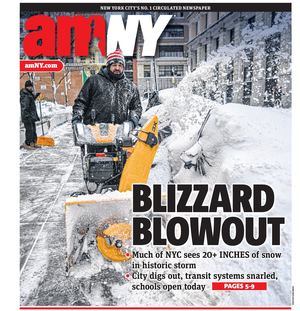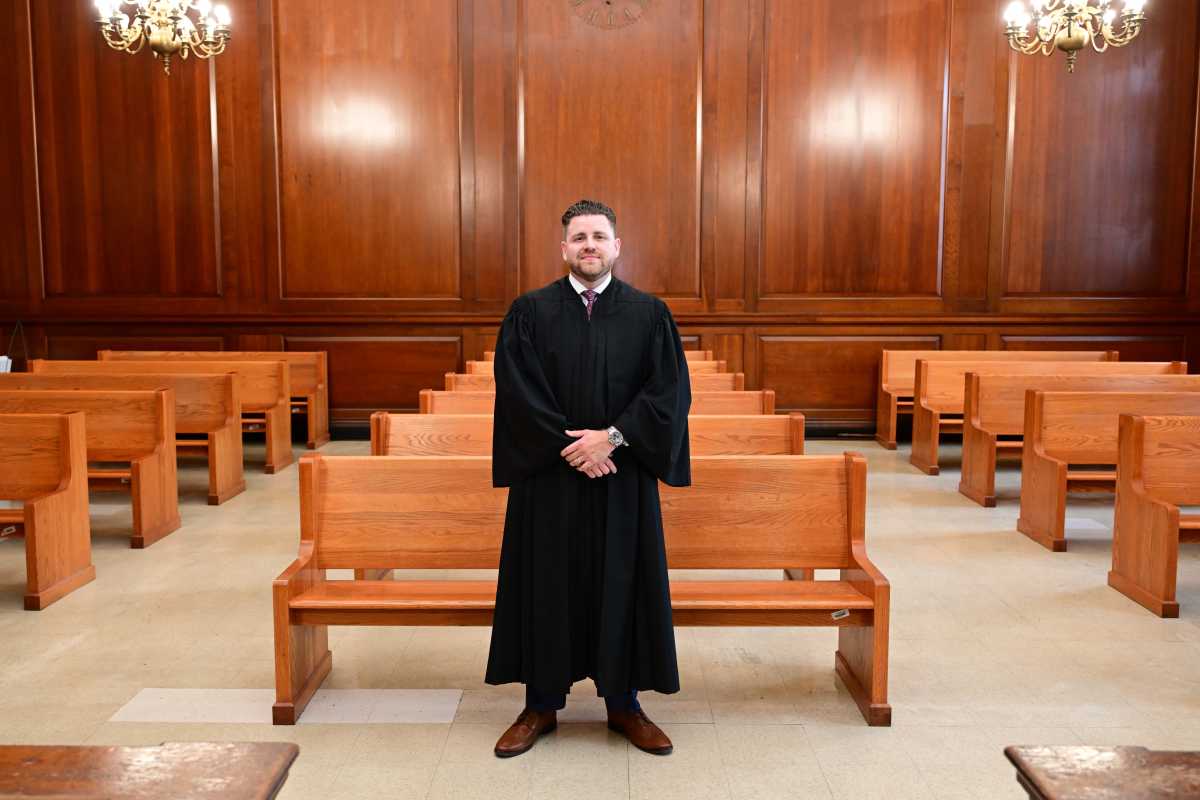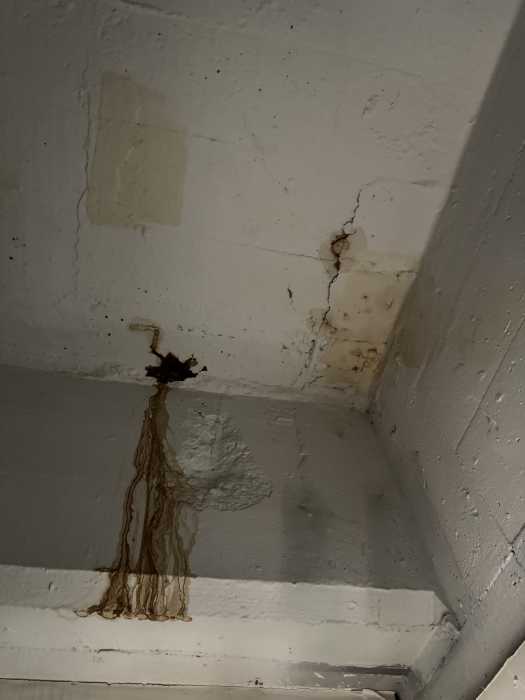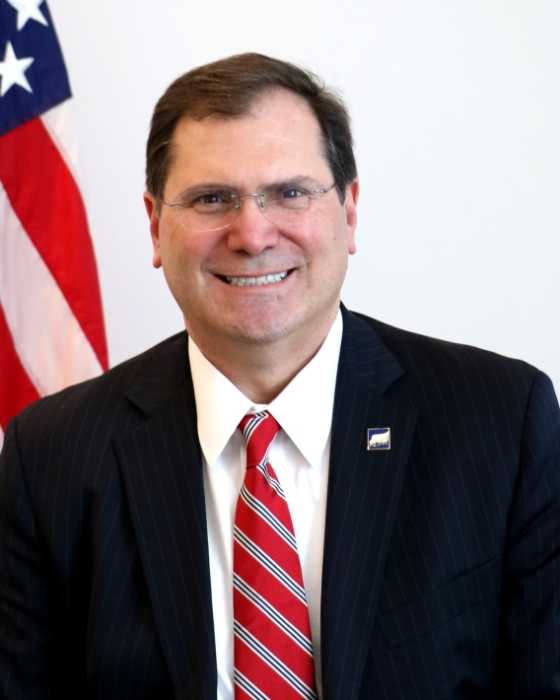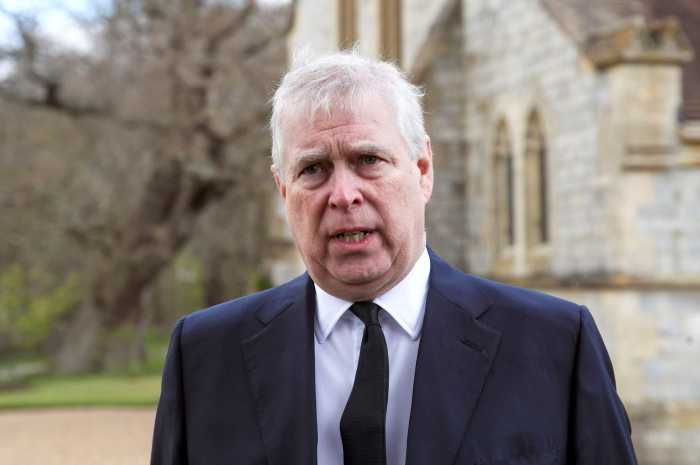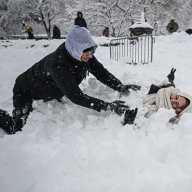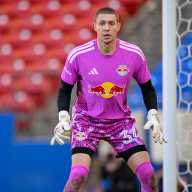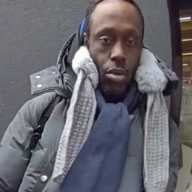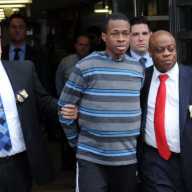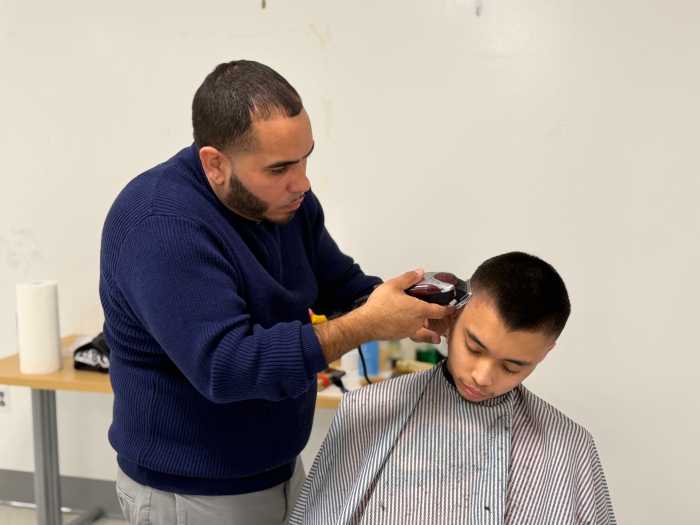Judge Raymond Fernandez said he’ll never forget watching “The Dark Knight” in the theater in 2008: the moment he checked his phone and received his final LSAT score.
Fernandez grew up in a homeless shelter and assisted housing with absent parents who were caught in a life of addiction. A gifted and driven student who did not attend school until he was in first grade, he had struggled through the two previous attempts at the legal aptitude test.
Finally, he had paid for a prep class with a high-interest $5,000 loan he couldn’t afford and had gotten an offer from the CUNY School of Law on the condition that he could break a 150 score on the LSAT. Since middle school, his whole life had led to this moment: A chance to build a life that could elevate him from the cycle of poverty that he was trapped in.
When an email popped up with his score report as Batman beamed on the screen, he pushed through his paralyzing fears, and forced himself to look at his phone. His score jumped from 146 to 151.
“That number changed my life,” Fernandez said. At that moment he made a “promise to God” to “do the most good I could with a law degree.”
Fernandez was designated an Acting Supreme Court Justice in the Bronx by Chief Administrative Judge Joseph Zayas in 2023, shortly after Gov. Kathy Hochul appointed him to the Court of Claims. He has supported himself through John Jay College of Criminal Justice and CUNY Law School, and clerked for three judges, including Court of Appeals Judge Jenny Rivera.
But it’s Fernandez’s early life that makes his story so remarkable. He has recently made his troubled childhood public knowledge, first telling his story on the court system’s Amici Podcast.
He grew up in a household where he had to provide necessities like soap; where he often wore dirty clothes; where the unpaid electricity bill led to the power being consistently getting shut off; and where he had to lock his door so that his parents didn’t steal his paycheck.
Fernandez said he wants to make it easier for judges to be open about their life struggles and to reach young people who come from similar backgrounds.
“I grew up ashamed of who my parents were, and I dealt with that for a very, very long time,” Fernandez told amNY Law. “The shame is gone. I will tell this story as many times as anyone will listen. And I hope someone hears it who needs to hear it.”
He has also used his vantage point to spotlight issues in the system that prevent low-income students from entering the field of law.
“When you’re coming up through the shelter system, when you have parents that are drug addicts, when you are living in poverty, your parents don’t have friends that are lawyers,” Fernandez said. “Your siblings aren’t growing up to be lawyers… so you don’t start thinking that those are doors that could be opened for you.”
The court system has come a long way in expanding paid internships, providing mock trial programs and visiting schools, he said. But beyond early exposure to the law profession, Fernandez pointed to bigger systemic issues that acted as a bottleneck for him. Despite his resolute commitment to education as his path out of poverty, Fernandez found success at the LSAT totally elusive. He’s not alone. Studies have shown law school’s reliance on the LSAT has created barriers across racial and socioeconomic lines that prevent minority and low-income students from entering into the legal field.
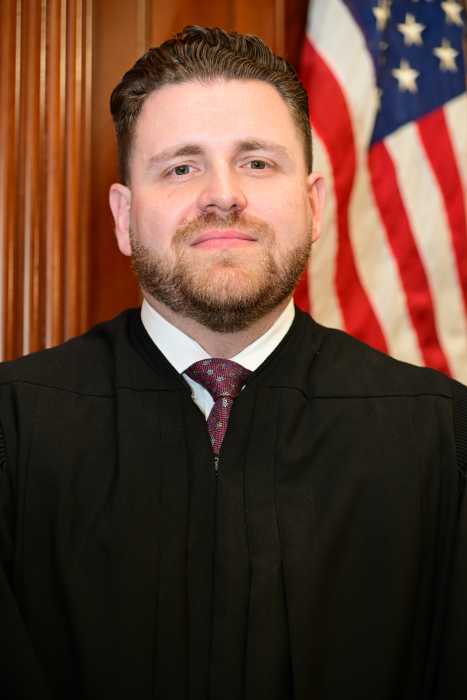
He’s advocated for more law schools to provide alternative admissions programs such as the type that takes the emphasis off standardized test scores.
“I don’t think I’m that unique,” Fernandez said. “I’m sure some of my colleagues have dealt with struggles in their past. I hope they open up about it. I hope it encourages them to be like, ‘Yeah, my home life was chaotic too.’ ”
Fernandez was born in East Harlem to a young mother who was struggling with heroin addiction. His father, who at the time of his birth was a superintendent in an apartment building, had a wife and other children that he had left for Fernandez’s mother before he too succumbed to addiction. At a young age, Fernandez’s parents were evicted from their apartment when tenants discovered his mother had been stealing from them.
“The eviction came swift. There was a sign on the door, and city marshals took us out,” Fernandez said.
It was 1992 when his family entered a shelter on Third Street in Manhattan. Fernandez remembers being given a locker for the family’s belongings, sleeping on cots and living off of cafeteria food. His family eventually advanced into Tier Two housing, where they got a private apartment, but were still a part of the shelter system.
It was then, at the age of seven, that a case worker noticed Fernandez had never been to school.
“They dropped me right into first grade. No pre-K, no kindergarten, no daycare. I’ve never been around any other children. I don’t need to tell you, that was pure chaos,” he said.
In many ways, school didn’t get much easier. The other students soon realized that they had seen his parents outside the school collecting cans or rummaging for items to sell.
“I was tormented. I was bullied relentlessly,” Fernandez said. “I was always disheveled… I always had mismatched clothes. My clothes were dirty. No one was gonna do my laundry.”
But throughout the turmoil, something clicked academically. In first grade, he went from not being able to read to suddenly getting the highest language arts score in his class. As he progressed through school, his teachers noticed his scholastic talents and encouraged him.
“I had a teacher tell me, ‘the world is so much bigger than the small neighborhood that you’re in,” Fernandez said. ‘“Most of the world doesn’t care what sneakers you walk around (in)… Your education, this matters. What you hang up on your wall, it’s going to mean more to you.’ And I was like, ‘Wow, that’s a crazy thing to tell a 10- or 11-year-old.’”
Another teacher, he recalled, bought him a Gap jacket in the winter and quietly slipped it to him after class — an act of tenderness that he never forgot. That teacher was at his wedding. They remain close friends.
It was the 1998 World Series that sparked an epiphany about his life’s course. Fernandez was an avid Yankees fan and he and his father were listening to one of the games on a battery-powered radio since the electricity had been shut off. Midway through the game, the audio started to flutter and the battery died — cutting him off from his hero, Derek Jeter.
Fernandez, a middle school student, had reached his breaking point.
“This is their life. It doesn’t have to be mine,” he thought at the time. “Thankfully, the voice in my head was so positive. How am I gonna get out of this? What am I gonna do? It’s got to be me. No one’s going to hand me anything. The cavalry isn’t coming.”
He decided at that moment he wanted a life he never would need drugs to escape from. He would follow his teachers’ advice and dedicate himself to school with his sights on getting into college. When he enrolled at John Jay College of Criminal Justice, he worked an assortment of restaurant industry jobs with night hours — waiter, busboy, line cook, food runner and bartender.
“The joke with me was always that my only day off was when I was in school,” Fernandez said.
After graduating college and having his “Dark Knight” moment, Fernandez’s legal ambitions took a clearer shape. From grade school on, he “romanticized the notion that lawyers saved the day” after seeing Legal Aid lawyers take up his mother’s case on more than one occasion.
“I thought there was so much power in that — to be the voice for the voiceless. It’s such a romantic notion. I put it up in my head, and said, ‘Yeah, I want to do that. I want to help people who are like my parents.’”
Fernandez formed a pivotal connection when he took Judge Rivera’s lawyering seminar class prior to her ascent to the Court of Appeals. Fernandez had heard Rivera would take on promising students as research assistants if they made a good impression on an appellate brief assignment.
When the assignment came along, Fernandez locked himself away, and put everything he could into it. Sure enough, she took notice and recommended him for the Puerto Rican Bar Association scholarship.
“That was just so validating from someone of such importance. People always told me I was a good writer but I didn’t believe it until she said it,” Fernandez said.
He described his experience in law school as “survival mode” — a constant internal battle to overcome the “debilitating anxiety I had that I was going to flunk out.” But he was developing his tool box. Fernandez realized he had a talent for criminal law, and after graduating, joined The Legal Aid Society as a public defender in Queens.
After a year and a half of public defense work, Fernandez read that Rivera had been confirmed to the Court of Appeals, and reached out to congratulate her. She responded by asking him to apply to be her law clerk.
When he got the clerkship, the hours were relentless as was the pressure Fernandez put on himself to meet Rivera’s expectations.“Clerking at the Court of Appeals taught me how to think big picture — from the top down. How an appellate panel works together to reach consensus,” he said.
After working as Rivera’s law clerk for several years, Fernandez went into the private sector with a defense firm and began plotting his return to the court system. Several years later he scored a clerkship with Judge Norma Ruiz, a trial court judge in the Bronx, followed by another with Supreme Court Judge Doris Gonzalez.
“I had this fire in me to become a judge in the same way I had that fire in me after the ‘98 World Series. Everything to me was this race to get a foundation,” Fernandez said.
By 2023, Fernandez had met his 10-year-benchmark of legal practice that made him eligible to serve as a judge, and had prepared an application for a spot on the court of claims bench. Governor Kathy Hochul appointed him and Judge Zayas, whom Fernandez had sought out for advice after joining the private sector, appointed him to a trial court where he now sits.
“Working here in the Bronx at the trial level has brought me back in the trenches,” he said.
Though Fernandez stressed that maintaining a neutral stance on the written law is a core part of his role as a judge, he also acknowledged that his background has shaped his approach in his ability to understand the people who come before him.
“Empathy isn’t bias. It’s not about taking sides. It’s about listening. It’s about remembering that every case has people behind it. You can follow the law to the letter and still be a human in how you implement it,” he said.
When he gets a pro se litigant, and the other party moves immediately to dismiss, Fernandez said it’s important to him to take a moment to listen to the case, even if it ends up being dismissed.
“I hope people walk into my courtroom and feel seen,” he said. “You won’t like every decisionI make, but I hope [they] leave feeling like they were treated fairly and with respect. That matters a lot to me.”
